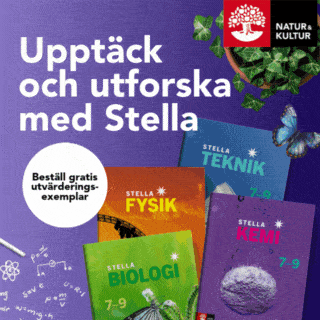Essays on Educational Choices and Integration
Elisabet Olme har forskat om utbildning och integration. Bland annat vad som påverkar föräldrars val av grundskola och vilka konsekvenser det får för fördelningen av elever mellan skolor.
Elisabet Olme
Associate Professor David Seim, Stockholms universitet Professor Jonas Vlachos, Stockholms universitet
Associate Professor Robert McMillan, University of Toronto
Stockholms universitet
2019-05-29
Essays on Educational Choices and Integration
Essays on Educational Choices and Integration
Are Parents Uninformed? The Impact of School Performance Information on School Choices and School Assignments. We study the impact of providing information about schools’ performances on households’ choice of school. A randomly selected subset of households with children about to start middle school in a Swedish municipality were provided with information about the schools’ performances on standardized tests. We find that this information made them more likely to apply to the top-performing schools, compared to households in the control group. The effect is driven by native children and children to high-skilled parents. Next, we simulate how this would affect the allocation of students to schools, under the assumption that all households would have access to this information. As expected, enrollment in top-performing schools increase, but the effect is muted by the schools’ capacity constraints. Again, native and high-skilled drive the effect, by shifting their applications from mid- to top-performing schools. This leads to reduced school segregation by foreign background as children with a foreign background are overrepresented at the top-performing schools to begin with. Furthermore, school segregation by parental education increases slightly as children with highly educated parents congregate at the top-performing schools.
School Choice, Admission Rules and Segregation in Primary School.We study the impact on primary school segregation of three different admission criteria, in a school choice program using deferred acceptance to allocate students to schools. Using Swedish administrative register data, we simulate the allocation of students using proximity to the school, a lottery and affirmative action to determine students’ priorities to oversubscribed schools. To predict the application lists under counterfactual admission schemes, households’ preferences for schools are estimated using administrative school choice data from a Swedish municipality. The results suggest that school segregation by family background decreases when lottery-based priorities or affirmative action is used, compared to proximity-based priorities. When proximity-based priorities are used, the allocation of students to schools widely resembles the allocation that results from using school catchment zones (ignoring parents’ preferences and base admission solely on students’ residential locations). The cost of abandoning proximity-based priorities in favor of lotteries or affirmative action is modest; children are assigned to schools that are highly ranked on their application lists under each admission scheme.
Should I Stay or Must I Go? Temporary Refugee Protection and Labor-Market Outcomes. We study the impact of a prolonged period of temporary protection before being eligible to apply for permanent residency on human capital investments and labor-market outcomes of refugees. In 2002, Denmark prolonged the period with temporary protection from three to seven years, for refugees. The reform was implemented retroactively, allowing the effects to be estimated using a regression discontinuity design. Furthermore, we set up a theoretical search and matching model in order to understand the mechanisms at work. The empirical results show that enrollment in education increased, following the reform. Females and low-skilled individuals drive the effect. This is in line with the theoretical predictions from the model. We do not estimate any significant effects on labor-market outcomes for the full sample.
The Effects of Performance Based Bonuses in the Swedish Language-Training Program. I study the impact of the introduction of performance-based monetary bonuses in the Swedish language-training program for immigrants. Under the bonus system, a passing grade in certain courses was rewarded with up to 12,000 SEK (approximately 1,666 USD). The bonus system was introduced in 2010, and eligibility was completely determined by the date of immigration to Sweden and the type of residence permit held. Using a sharp regression discontinuity design, the effects on enrollment and course completion are estimated. The results do not indicate any impact on the enrollment rate, which might be explained by the initially high enrollment rate of 80 percent. Furthermore, the prospect of receiving a bonus does not seem to increase overall course completion. The effects are also estimated for the bonus-qualifying courses separately, but the results are inconclusive. A positive effect of a few percentage points cannot be excluded, but the results are sensitive to the regression specification.
Relaterade länkar

Juridik
 Gy–Vux
Gy–Vux
Fysisk aktivitet och motorik i förskolan
 Fsk
Fsk


